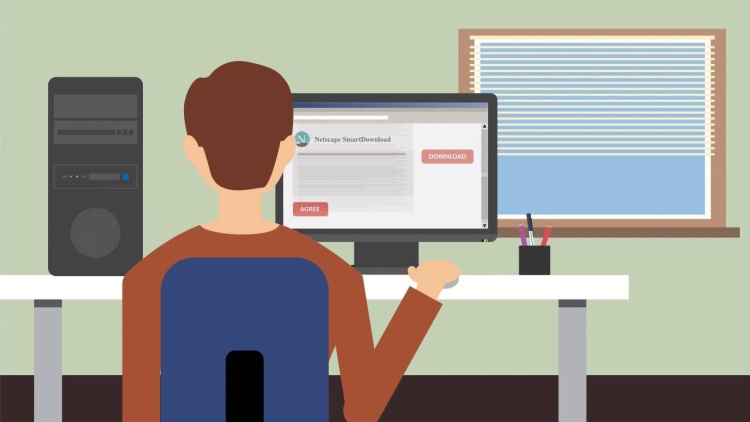Specht v. Netscape Communications Corp.
United States Court of Appeals, Second Circuit
306 F.3d 17 (2002)
- Written by Megan Petersen, JD
Facts
Netscape Communications Corp. (Netscape) provided two separate software programs known as “Communicator” and “SmartDownload.” When internet users downloaded these programs, the programs tracked the users’ internet usage and displayed advertisements relevant to their usage. Before downloading Communicator, all users were required to view and accept a license spelling out these terms of use. The license automatically displayed on the computer screens of everyone who attempted to download Communicator. However, a similar license did not appear on the screens of those who attempted to download SmartDownload. Rather, users just saw a button that said “download” and invited them to click to download the program. A link to the license agreement for SmartDownload could be viewed by users who scrolled down their screens below the “download” button. However, this link was not automatically visible to users who did not scroll down. Both license agreements for Communicator and SmartDownload contained arbitration clauses. Five Netscape users (plaintiffs) all downloaded both Communicator and SmartDownload. They agreed to the license agreement for Communicator but were unaware of, and thus did not agree to, the license agreement for SmartDownload. If they had clicked on the license link for SmartDownload, they would have been presented with a screen telling them that by downloading the product, they were agreeing to be bound by the terms of the license agreement. The five Netscape users and a website operator named Christopher Specht (plaintiffs) brought suit against Netscape in federal district court on the ground that the SmartDownload software was a violation of privacy and electronic “eavesdropping” statutes. Netscape moved to compel arbitration under the terms of the license agreements. The Netscape users argued that they should not be bound by the arbitration clause for the SmartDownload contract because the license for that product was not visible to a reasonable internet user. The district court agreed and held that they were not bound by the SmartDownload license agreement. The court also said that even though the Netscape users had agreed to the Communicator license agreement, that agreement did not bind them to arbitrate their claims involving SmartDownload. Netscape appealed.
Rule of Law
Issue
Holding and Reasoning (Sotomayor, C.J.)
What to do next…
Here's why 910,000 law students have relied on our case briefs:
- Written by law professors and practitioners, not other law students. 47,100 briefs, keyed to 997 casebooks. Top-notch customer support.
- The right amount of information, includes the facts, issues, rule of law, holding and reasoning, and any concurrences and dissents.
- Access in your classes, works on your mobile and tablet. Massive library of related video lessons and high quality multiple-choice questions.
- Easy to use, uniform format for every case brief. Written in plain English, not in legalese. Our briefs summarize and simplify; they don’t just repeat the court’s language.





